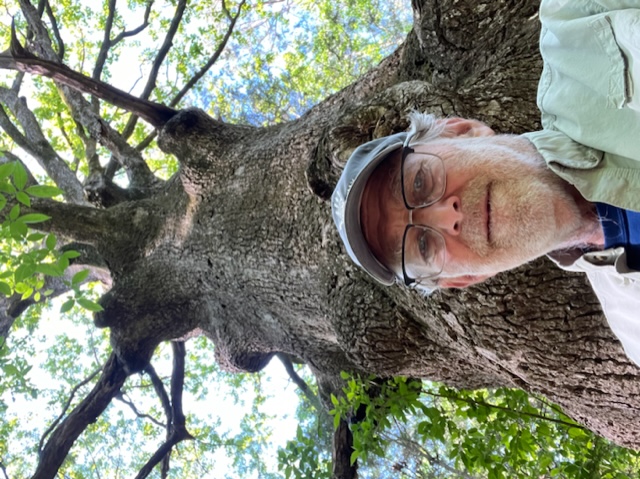"Arboreal Futures: Trees, Technology, Planetarity"
Richard writes: "In this lecture I will think about how contemporary science, technology, and culture are reimagining the role of trees and forests in shaping the future of humans, nonhumans, and the planet itself in the era of the Anthropocene, particularly in relation to deforestation, climate change, and biodiversity. My interest in thinking about arboreal futures is not only to think about what humans will do about trees, but more interestingly to think about what trees will do about humans, that is, to think about futurity in terms of arboreality, of what trees do for one another and the planet."
Richard Grusin is Distinguished Professor Emerit of English at University of Wisconsin-Milwaukee, where he served as Director of the Center for 21st Century Studies from 2010-2015 and 2017-2021. He has published four monographs in English and one in Italian: Transcendentalist Hermeneutics: Institutional Authority and the Higher Criticism of the Bible (Duke, 1991); Remediation: Understanding New Media, with Jay David Bolter (MIT, 1999), Culture, Technology, and the Creation of America’s National Parks (Cambridge, 2003); Premediation: Affect and Mediality after 9/11 (Palgrave, 2010), and Radical Mediation: Cinema, Estetica, e Tecnologie Digitali (Pellegrini, 2017). He has also edited six volumes with University of Minnesota Press: The Nonhuman Turn (2015); Anthropocene Feminism (2017); After Extinction (2018); Ends of Cinema (2020); Insecurity (2022); and The Long 2020 (2023). His current research interests focus on arboreal humanities and critical arboreal studies.
In August of 2022, Scientific American magazine opined that “This Hot Summer is One of the Coolest of the Rest of Our Lives.” This attitude also animated a popular meme. In the original scenes from The Simpsons, Bart laments that he is having the worst day of his life and Homer comforts him by reminding him that it is merely the worst day yet. The meme turns Bart’s complaint into an apt quip about the Anthropocene. “This is the hottest summer of my life,” says Bart. “This is the hottest summer of your life so far,” Homer replies. And indeed, as predicted, the summer of 2023 was hotter than the year before.
The Simpson meme’s despairing pessimism would seem to mark the end of the longstanding attitude that has motivated so much environmental activism: the future of life on Earth must be saved and we have only narrow window of time to save it. In this drama of rescue, the future is already known. If we succeed in implementing policy changes to stop the production of fossil fuel emissions, then the future is this, but better. Realistically, and increasingly commonly, it is this, but worse. Neither option admits of a future that is not yet known or is radically discontinuous from the present.
For speakers in this lecture series, current practices and their effects on the future are far stranger than such a scenario allows. From hormone dispersion in the waterways to de-extinction technologies, the speakers in the Planetary Futures series tell stories of the weird critters that might emerge from the strange chemical soups of the present, they consider the odd feelings that come from such uncertain futures, and they interrogate the colonial histories, neoimperial presents, and sexual and racial metaphysics that underpin, distort, reject, and reimagine the notion of futurity as such. Drawing on theories of queer temporality, Black studies, postnatural aesthetics, and feminist science, our speakers consider the planet from the speculative vantage of its potential future inhabitants, rather than from the abstraction life, to highlight the tangle of relations at stake in every imagining of the planet.


